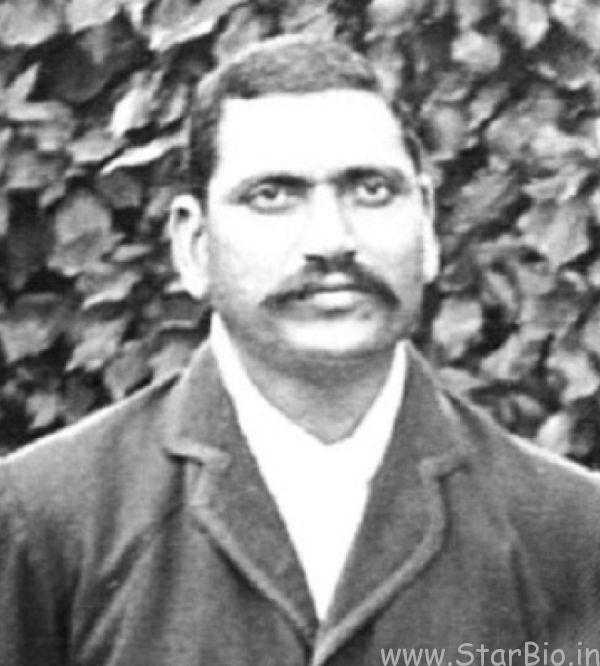
Palwankar Baloo was an Indian Cricketer from the 19th century. He was the first person of the Dalit community to make a significant mark in the world of sports. He bowled left-arm-orthodox spin and could turn the ball both ways.
Biography/Wiki
Palwankar Baloo was born on 19 March 1876 at Dharwad, Karnataka, India. He beat the caste prejudice in society and became one of the essential cricketers for India at that time. He died on 4 July 1955 in Bombay, India. He was 79 years old at the time of death. With his left-arm-spin, he tormented the batsman on a pitch which was batsman friendly. In his career, he played for the Hindus and the Maharaja of Patiala’s All India Team.
Palwankar Baloo with the Maharaja of Patiala’s All India Team
Apart from cricket, he also was instrumental in improving the stature of lower castes and untouchables in the society. He also took part in politics and had close relations with the freedom fighters like B. R. Ambedkar and Mahatma Gandhi.
Family
He was born into a family of leather workers; his father though worked in the army. His family name Palwankar comes from his native village Palwan. He grew up with three brothers, Babaji Palwankar Shivram, Palwankar Ganpat, and Palwankar Vithal who all were cricketers.
Palwankar Vithal
Vithal went on to become the captain of the Hindu team. He was married and had a son, YB Palwankar.
Religion & Caste
He believed in Hinduism and belonged to Dalit caste. During that time in India, there was a lot of caste discrimination, and hence he faced a lot of difficulty in pursuing cricket. His skills and performances were often ignored and was also dropped from the team because of his caste. He rose above this and became a face for the movement of the upliftment of the lower castes and the untouchables.
Career
He got his first job of tending the pitch at a cricket club for Parsis in Pune (then Poona). He earned ₹3 a month. In 1892, he moved to the cricket club for Europeans, The Poona Club, where he erected the practice nets, rolled and swept the pitch and also occasionally marked the tennis courts.
Palwankar Baloo with his team at the Poona Gym
Mr. Tross, one of the Europeans, encouraged him to bowl at the nets. His slow-left-arm bowling impressed many, Captain J.G. Greig, in particular. It is believed that Grieg used to give him eight annas every time Baloo dismissed him. He bowled a lot in the nets but was never given the opportunity to bat, as at that time batting was considered as preserved for the aristocratic class. Due to caste bias, he was not selected on the Hindu side, but his impressive performances were too good to be ignored. He made his first-class debut on 8 February 1906 for Hindus against the Europeans.
Palwankar Baloo with the All India Team
He played for the Hindu side in the all so famous 1906 and 1907 matches against the Europeans of the Bombay Gymkhana. The Hindus defeated the Europeans by 109 and 238 runs respectively. He took 114 wickets on to tour to England in 1911 at an average of 18.84.
Palwankar Baloo with the team in 1911
From 1905/06 to 1920/21, he took 179 wickets at an average of 15.21 and also became the First Indian Dalit cricketer.
Politics
He was friends with another Dalit, B. R. Ambedkar who was one of the most influential leaders in turning the caste system. Their relation deteriorated with time over a disagreement on the methods of dismantling caste system, although Ambedkar always considered Baloo as a hero of the Dalits. In the pre-independence era, he got involved in politics and strongly supported Mahatma Gandhi and his home rule movement.
Palwankar Baloo
In October 1933, he unsuccessfully contested for the Bombay Municipality seat, on the Hindu Mahasabha ticket. In 1937, Baloo again contested, this time for the “Scheduled Caste” seat in the Bombay Legislative Assembly against B. R. Ambedkar, to whom he lost by the close margin of 13,245 to 11,225 votes.
Facts
- He played his last first-class match on 8 December 1920 for Hindus against Parsees.
- In 2018, a biopic on him was announced, produced by Priti Sinha and directed by Tigmanshu Dhulia. On this, Tigmanshu said,
I prefer telling stories about unsung heroes. Like Paan Singh, Baloo Palwankar too is unknown outside cricketing circle. His story is the story of India and what better backdrop to have than cricket.
